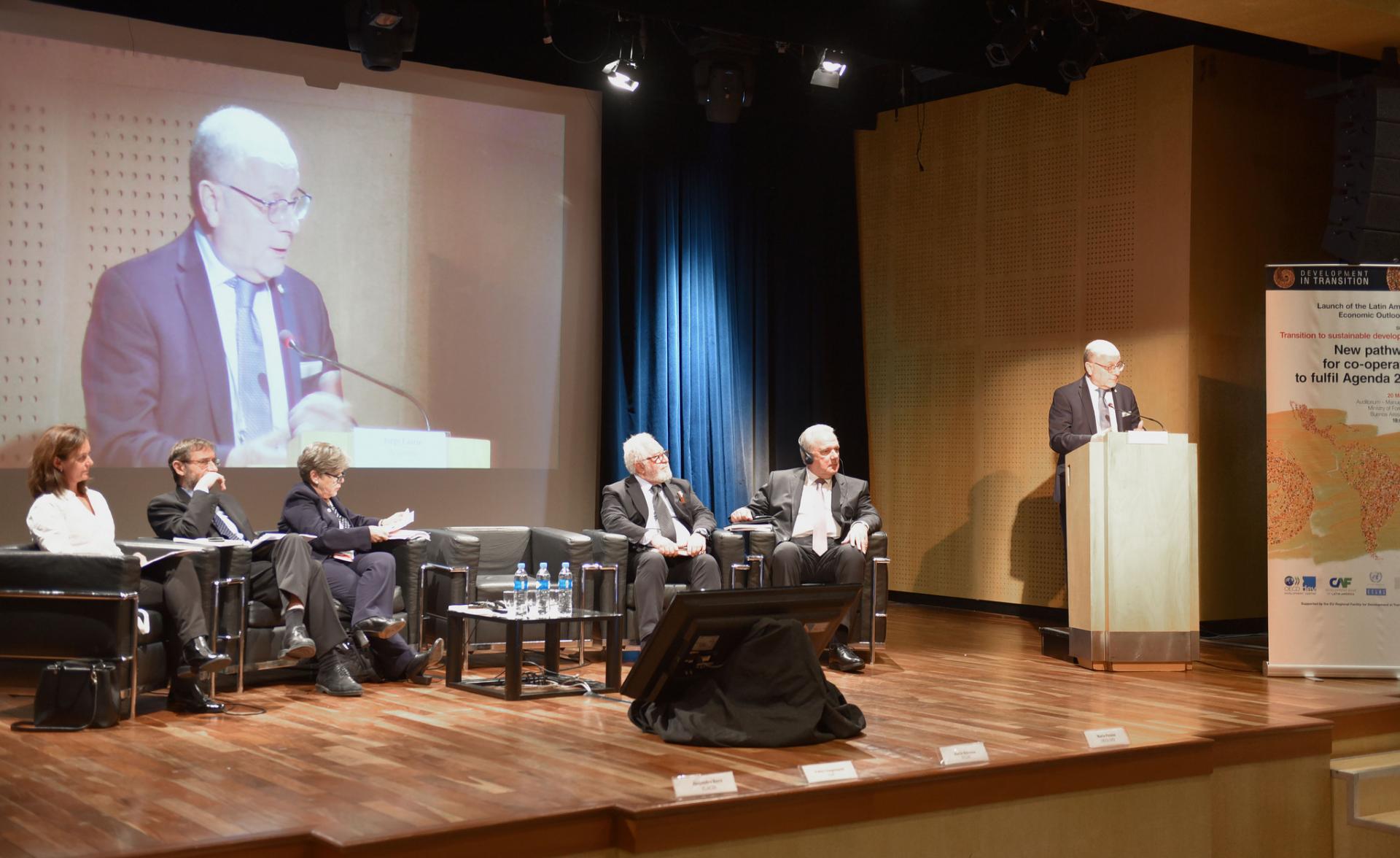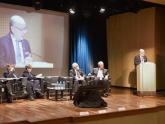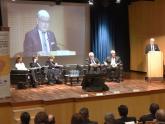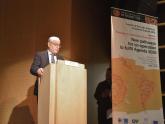This afternoon, the Foreign Minister opened a High-level meeting on sustainable development and cooperation at the Manuel Belgrano Auditorium, which was attended by representatives and experts from the OECD, ECLAC, the European Commission and CAF.
Today, Foreign Minister Jorge Faurie opened a High-level meeting on cooperation and transition towards sustainable development, which was attended by the heads and other representatives of various international organizations, who are currently in our country for the 2nd High-Level United Nations Conference on South-South Cooperation (BAPA+40), which will be held in Buenos Aires this week and will bring together many foreign delegations.
During the meeting, which took place this afternoon at the Manuel Belgrano Auditorium of the Argentine Foreign Ministry, the report Latin American Economic Outlook 2019: Development in Transition, jointly prepared by the OECD Development Centre, CAF, ECLAC, and the EU, was officially presented.
At the beginning of the meeting, Faurie highlighted that "achieving consistent agreements through multilateralism" and "turning those agreements into actual benefits for the people" represents a "double challenge."
"The global challenges we have to face in order to consolidate development –in the case of countries like Argentina– call for dialogue between all international actors to provide collective answers," the Foreign Minister stated. "Argentina is doing its part: since President Macri took office, we have encouraged dialogue on all these issues on the multilateral agenda (WTO, Antarctic Treaty, G20)," he added.
"In recent history, we have gone from being underdeveloped countries –which seemed a static and immutable situation– to being developing countries, which shows evolution and creates the expectation of eventually achieving development. We have recently started talking about emerging markets, especially in relation to countries with a high GDP but low per capita distribution," he explained.
The Foreign Minister stated that "the adoption of the 2030 Agenda and the Sustainable Development Goals is a multilateral milestone" and that "we believe that development is a continuous and universal thing, which must cover many fields. It must be multidimensional."
"When I presided over the 4th High-Level Meeting of the OECD Development Centre in October 2017, we discussed the concept of development in transition and I believe we agreed on the fact that it is not proper to define a country's level of development by its income level, because an increase in national income does not necessarily mean greater well-being for the people. This is especially true in the case of countries with inequality and structural poverty, such as Latin American countries," explained the Foreign Minister.
"The paradigm of development has changed due to the fact that it is complex and heterogeneous, and the objectives of cooperation have fallen behind. We must be able to promote the sharing of knowledge and mobilize resources," Faurie stated.
"This is a difficult moment at the international level. In view of this time of uncertainties, we must be able to provide, in each sector, concrete solutions that benefit the people. We should make contributions to benefit each of our fellow citizens.
The European Commissioner for International Cooperation and Development, Neven Mimiça, the Executive Secretary of ECLAC, Alicia Bárcena, the Corporate Director of Economic Analysis and Knowledge for Development of CAF, Pablo Sanguinetti, and the Director of the OECD Development Centre, Mario Pezzini, were all part the panel.




